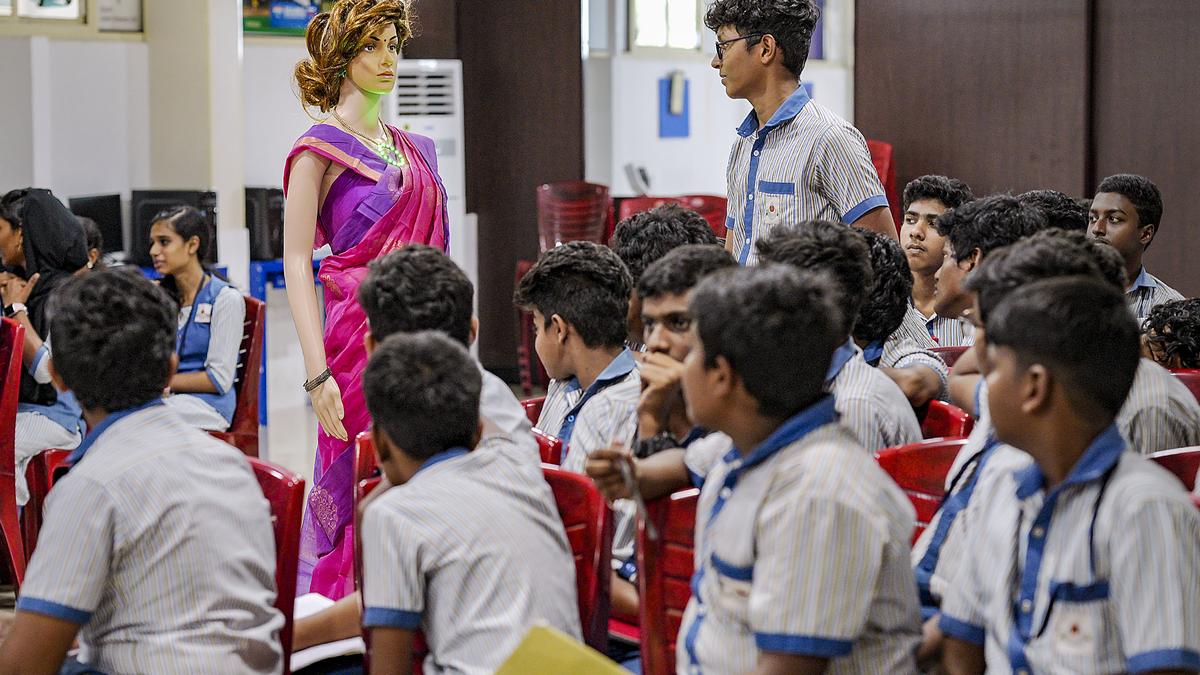Is Artificial Intelligence affecting Critical Thinking Skills?

- 13 Mar 2025
Context:
The growing integration of Artificial Intelligence (AI) in educational spaces has sparked a global debate on its impact on students' critical thinking. With AI tools like ChatGPT and Copilot becoming ubiquitous, concerns have emerged about their potential to replace the intellectual rigor traditionally expected of learners.
AI in Classrooms: An Inevitable Shift
AI is no longer a futuristic concept but an entrenched part of everyday life, including education. In India, over 61% of educators reportedly use AI tools, and globally, a majority of students now rely on generative AI for academic work. This shift raises the fundamental question: Is AI eroding students’ ability to think independently?
Experts argue that banning AI from classrooms is neither feasible nor productive. AI’s integration into platforms like Microsoft Word and Adobe Reader means its use is often passive and unavoidable. Instead, the focus should be on responsible and ethical integration aligned with course objectives.
Impact on Critical Thinking
While some educators worry that AI might lead to intellectual passivity, others assert that it depends on the pedagogy. Courses aiming to cultivate analytical thinking—like humanities—should limit AI use, whereas technical subjects such as coding might benefit from it. The evolving skillset now values the ability to validate and critique AI-generated outputs over traditional rote learning.
Yet, over-dependence is a valid concern. Students may begin accepting AI responses without questioning their validity. To address this, a shift in educational design is necessary—moving from information recall to critical engagement with AI-generated content.
AI as Infrastructure in Education
AI is increasingly being seen as critical infrastructure in academic institutions. Reports like the World Economic Forum’s Future of Jobs Report (2025) emphasize the importance of analytical thinking, adaptability, and AI-related competencies. However, there is a need for robust digital literacy training to inform users about the risks—especially data privacy and algorithmic biases.
The adoption of AI in schools and universities must be accompanied by risk audits, including assessments of embedded biases, training data integrity, and transparency in design.
Need for Regulation and Institutional Policies
India currently lacks a comprehensive regulatory framework for AI in education. In the interim, individual institutions must step in to develop internal policies guiding ethical AI use. This includes declaring course-specific AI policies and fostering dialogues among students and faculty. Global universities offer useful templates, with general guidelines complemented by course-specific rules.
Conclusion: Regulate, Don't Resist
AI’s presence in education is irreversible. Rather than resisting its use, educational institutions must adapt by promoting informed, critical engagement with AI. While AI can assist in learning, it should not substitute the cognitive processes that education aims to cultivate. The future lies in developing a balanced model, where AI complements human intelligence rather than undermining it.
